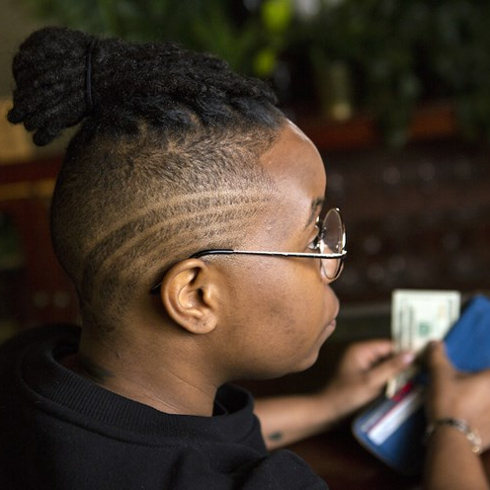Home ownership is a dream for many Canadians, but – for the millennial generation — it’s a dream that’s increasingly unattainable on their own. As a result, more and more parents are stepping in with financial help to nudge open the door to home ownership for their kids. From legal and financial obligations to the impact on the parent-child relationship, here are some key factors to consider if you’re thinking of helping your adult children buy property.

Millennials Want to Be Homeowners
The desire to own your home spans generations, but the reality of home ownership is unattainable for the majority of young people. As outlined in a recent report on Millennials and the Markets by the Ontario Securities Commission (OSC), only 33% of millennials are homeowners – though 56% of millennials who don’t own their homes felt that home ownership is a top financial priority.

Parents Want to Help
It’s natural for parents to want to help their children, even once they’ve grown up. With factors like soaring real estate prices, stricter mortgage rules and a higher cost of living, it’s harder for young people to buy a home on their own. So, many parents are looking for ways they can help their kids to get into the housing market.

Down Payment Disappointments
One of the first places parents can consider when wanting to help kids enter the real estate market is with a down payment. While many non-homeowners are used to and capable of making monthly payments in the form of rent, one of the biggest obstacles for cash-strapped young people is finding the extra savings to come up with a large down payment.

How Parents Can Ease the Burden
As such, providing a down payment is an effective way for parents to help lift kids onto the property ladder. Though this is a huge financial decision, going with a lump-sum financial gift or a loan offer parents some flexibility — while still helping out.

It’s More Common Than You May Think
Helping adult kids with a down payment happens more than you may realize, with a 2019 First-Time Homeownership Study noting that 37% of homebuyers received financial gifts and loans from family members. This is a big jump in just a few years — up 6% from 31% in 2015.

Sometimes, It’s the Only Way
More than just helpful, it seems that parental contributions are the determining factor for many first-time homebuyers ability to purchase. The First-Time Homeownership Study showed that half of the people who received a gift or loan would have delayed purchasing a home without it.

Can You Afford It?
With that said, while it’s many parents’ instinct to want to help their child realize their dreams, it’s imperative that you’re absolutely sure that you can afford to help before you offer.

Put Your Own Financial Future First
Think of the classic airplane analogy: in the event of an emergency, you need to put your own oxygen mask on before you can help the person beside you. In the same way, be sure that your own financial situation is sound – considering the implications of factors like retirement in your future before you try to assist the next generation.

Avoid Refinancing
Sometimes, parents look to their equity as a way to help children buy homes, but this can be very risky. By refinancing your home to get money to give your children, you put your own financial future in jeopardy if the market adjusts and the value of your home goes down.

Gifts or Loans?
If you’ve assessed your situation and you are able to help fund your child’s home purchase, you need to then decide if your contribution will be an outright gift or a loan.

Gifting a Down Payment
While you’ve been giving your children gifts for birthdays, graduations and holidays for years, the rules around gifting a down payment are a little more complex. Check with the mortgage lender for specifics, but in general, a gifted down payment must come from an immediate relative and it must be a genuine gift — that is, you may have to sign a declaration confirming that the funds are a true gift and that they will never have to be repaid.

A Living Inheritance?
One way to think about giving the gift of a down payment to your child is to consider it a “living inheritance” or money passed down to a child or grandchild now, rather than as part of a will. If you can afford it, a living inheritance offers a few benefits: children can use the money they would have received in a will now, making homebuying accessible while they’re young. Also, because there are no taxes on gifts in Canada, even a large gift of a down payment won’t be taxed as income.

Loaning a Down Payment
If an outright gift isn’t in the cards for you, a financial loan may be a good option. By loaning children money to go towards home ownership, the expectation is that you’ll be repaid in the future which can ease the impact your own financial future and retirement. You can choose to loan the money at a lower interest rate than the mortgage rate (helping your kids save money). Still, with a loan there are also many factors to consider.

Set Clear Expectations
You aren’t a bank, but you are dealing with money when it comes to loaning your kids cash for a down payment. So, it’s important to set clear terms. Think about, discuss and mutually agree on the expectations for the loan — like how much money is needed, what the interest rate will be and when and how repayment will take place. You must also look into the implications of loaning money on your finances. For example, you are responsible for declaring interest earned on a loan on your tax return. Also, for your child, a loan from you is not considered their own down payment, so they may have to pay a surcharge from the Canada Mortgage and Housing Corporation.

What About Being a Guarantor?
If a gift or loan doesn’t make sense for your financial situation, another way that parents can help children enter the housing market is by signing as a guarantor on the mortgage. If all goes well, this is an easy way to use your own good credit and standing to assist your kids — however, there are still risks to consider.

Hard Talks and a Lot of Trust
Before signing as a guarantor, you need to have some in-depth conversations with your child — discussing their financial situation, budget and plan and ability to deal with unforeseen expenses. While these conversations can be uncomfortable, they’re necessary, as being a guarantor requires a great degree of trust.

Can They Keep Up Their End of the Bargain?
No matter what strategy you choose to help your children buy property, these in-depth conversations are necessary if you’re going to be a part of the homebuying process. By communicating well, both you and your children can enter the situation with clear eyes. These conversations also make it easier to better assess if your child will be able to hold up their end of the bargain and not take your help for granted.

How Involved Will You Be?
Whether you’re giving a gift or a loan, you should also consider how much involvement you can expect to have in the homebuying experience. Are you giving them money and letting your child choose freely how they want to spend it or do you want to have input in the investment? Do you expect to go to open houses? Buying a home a high-stress situation on its own — by discussing these things early on in the process, you can avoid potential parent-child conflict later.
Home Network your inbox.
By clicking "SIGN UP” you agree to receive emails from Home Network and accept Corus' Terms of Use and Corus' Privacy Policy.




